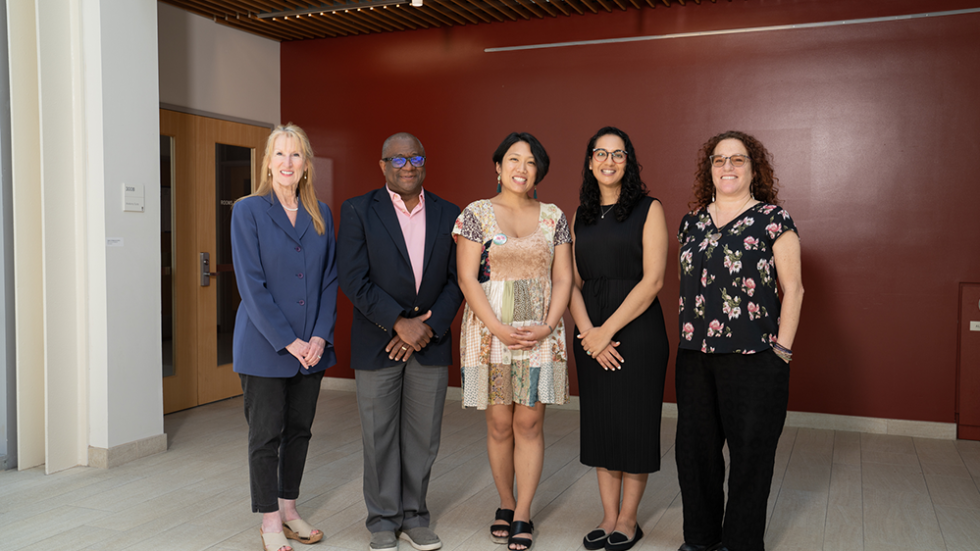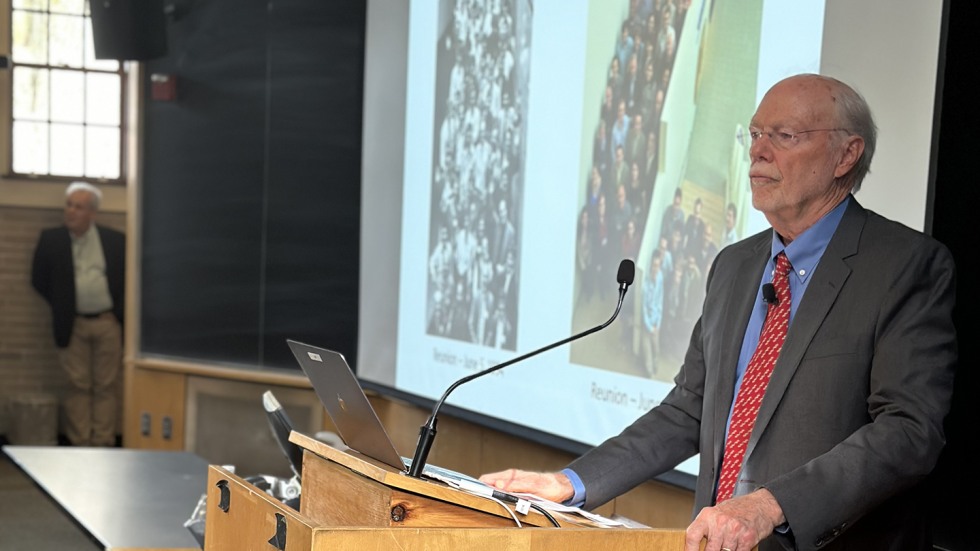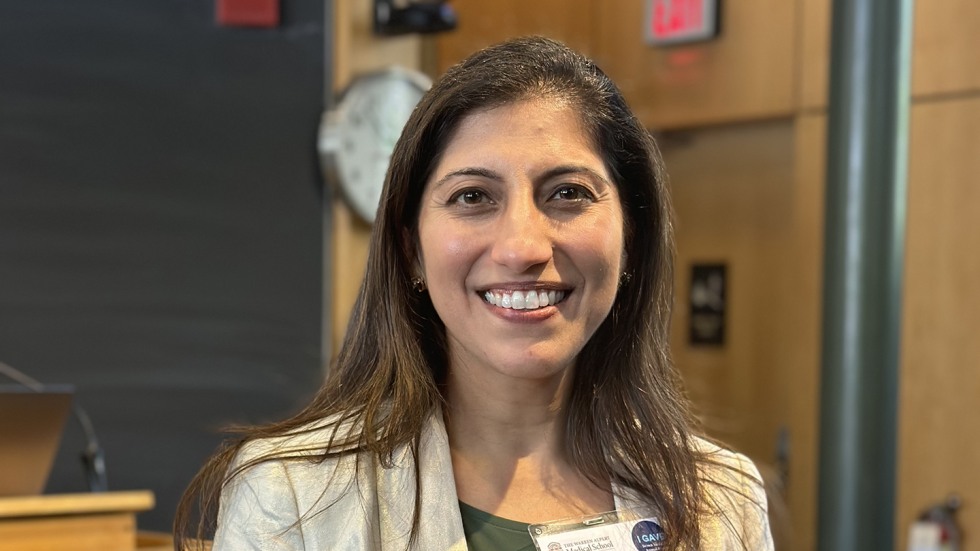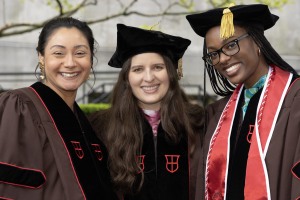Medical community celebrates Commencement-Reunion 2024
Alumni return to campus for a weekend of celebration and awards.
Medical School alumni flocked to Brown over Memorial Day Weekend to mix, mingle, and celebrate the contributions and lectureships of several distinguished peers as part of Medical Reunion 2024.
The weekend kicked off with the Medical Community Celebration on Friday, when Dean Mukesh K. Jain, MD, and President Christina H. Paxson extended a warm welcome to all returning alums, as well as the graduates and their families.
Two members of the MD Class of 1999—who were celebrating their 25th reunion—were among the weekend’s honorees: Deborah Borne MD’99, MSW, and Pooja S. Tandon ’96 MD’99, who each delivered well-attended lectures on Saturday.
Borne discussed the impact of trauma-centered care on health outcomes in this year’s Ruth B. Sauber Distinguished Alumni Lecture, which was established to honor the late Ruth B. Sauber P’75. For the Charles O. Cooke, MD, Distinguished Visiting Lectureship, Tandon illustrated how equity in access to nature can have a direct effect on the health and well-being of individuals, communities, and the planet
Alumni also had the opportunity to learn about RNA discoveries and advances in health care at the Frank and Joan Rothman Lecture, which was delivered by Phillip A. Sharp, PhD, an MIT emeritus professor of biology.
The fun and reminiscing continued into Saturday evening, when the returning classes gathered for the Medical Alumni Class Dinner. The next morning, representatives from each reunion class year marched through the Van Wickle Gates again in the MD’24 Commencement procession.
Honors and Tributes
A celebratory ceremony on Saturday recognizing the recipients of the 2024 Brown Medical Alumni Association Awards took an emotional turn in memory of a dedicated alumnus.
Patricia Poitevien ‘94 MD’98, senior associate dean for diversity, equity, and inclusion, gave a moving tribute to the late Galen V. Henderson MD’93, a Brown Bear Award winner, past president of the Brown Alumni Association and the Brown Medical Alumni Association, and decorated neurologist—and the first recipient of the Senior Alumni Award for Excellence in Diversity, Equity, and Inclusion, in 2021.
Poitevien then announced that the award had been renamed in Henderson’s honor. Jeffrey F. Hines ’83 MD’86 received the first Galen V. Henderson MD’93 Award for Excellence in Diversity, Equity, and Inclusion. Hines has held multiple leadership roles in DEI throughout his career, most recently as interim vice president and chief diversity officer for the University of Connecticut and UConn Health.
Alexandra Morang, MA, director of career development, received the W.W. Keen Award. Named for William Williams Keen Jr., MD, one of Brown’s most distinguished medical alumni, the award recognizes outstanding contributions to medicine, patient care, or public health. Morang has been an adviser and mentor to medical students for more than 25 years and has received an unprecedented 29 Class Awards.

Recipients of the 2024 Brown Medical Alumni Association Awards: Alexandra Morang, MA, Jeffrey F. Hines ’83 MD’86, Elyse VyVy Trinh ‘11 MD’17, Nicolette Rodriguez '11 MD'16 MPH'16, and Deborah Borne MD’99, MSW. Photo by Karen Philippi.

Phillip A. Sharp, PhD, emeritus professor of biology at MIT, delivered a talk on on RNA discoveries and advances in health care.

Pooja S. Tandon ’96 MD’99 discussed play equity as part of the Charles O. Cooke, MD, Distinguished Visiting Lectureship.
Elyse VyVy Trinh ‘11 MD’17 received the Early Achievement Award, which recognizes outstanding service to The Warren Alpert Medical School or the community, or for a scientific or academic achievement. Trinh was deeply involved in community organizing during her residency at Kaiser Permanente Santa Clara, and she also helped found the Northern California Chapter of White Coats for Black Lives. Trinh is now an obstetrician-gynecologist at the Providence Community Health Centers and serves as co-chair on the board of directors of Refugee Youth Solidarity through Education.
Nicolette Rodriguez '11 MD'16 MPH'16 received the Junior Alumni Award for Excellence in Diversity, Equity, and Inclusion. Rodriguez is a gastroenterologist and instructor at Harvard Medical School/Brigham and Women's Hospital/Dana-Farber Cancer Institute, and serves as director of Fellowship Initiatives for Trainees Underrepresented in Medicine.
Borne, who received the Sauber lectureship, said her talk pulled from her own experiences with trauma-informed care and harm reduction among populations experiencing homelessness and addiction, which included positions with the San Francisco Department of Public Health. Her presentation touched on topics like misunderstood or ignored signs of trauma, the neurobiology behind it, and approaches to intervention.
“For the longest time, I just assumed that people understood what trauma-informed care was and how we address it,” Borne said. “I didn’t realize it’s still foreign to a lot of us in the medical community.”
